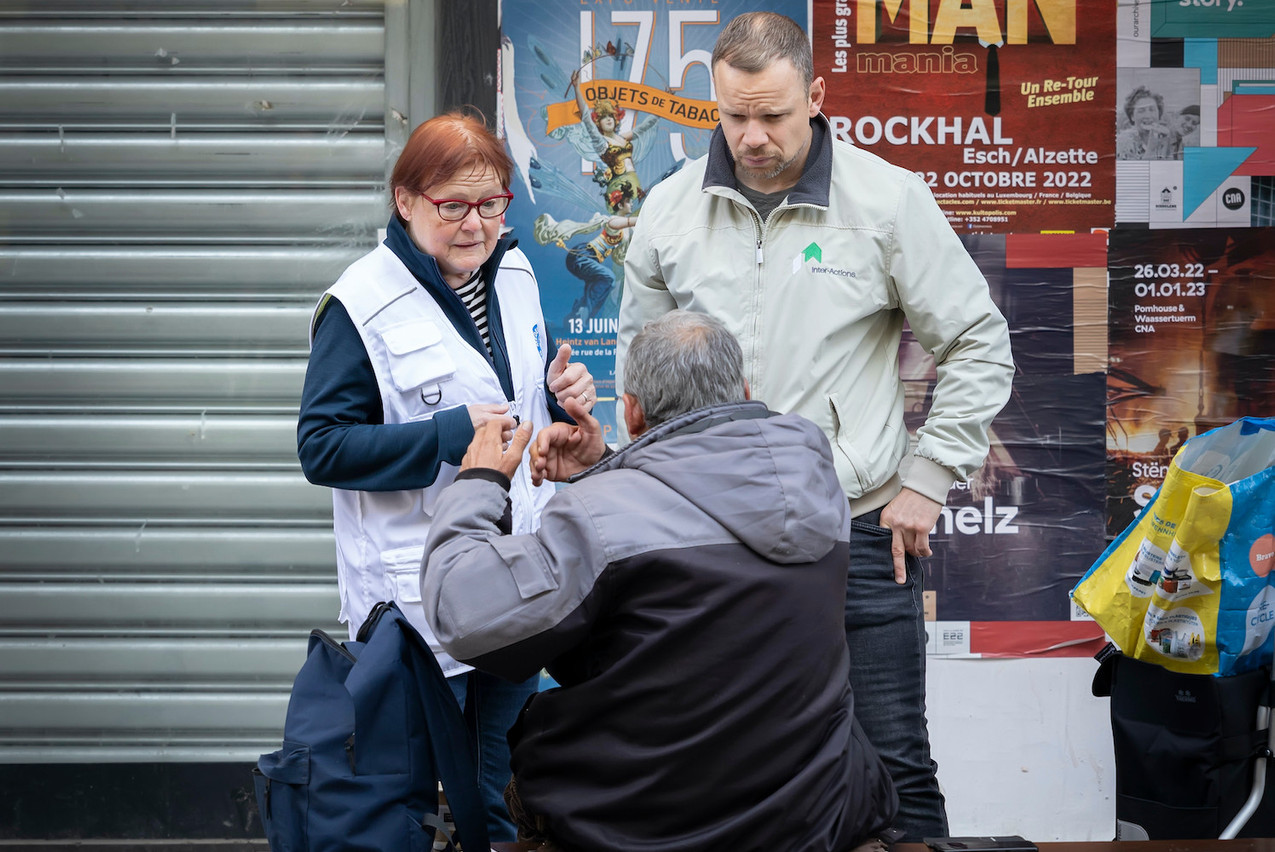The 100th foundation under the stewardship of the Fondation de Luxembourg was created last year, with €11m donated. The assets committed by the foundations combined meanwhile reached €330m, with donations secured in the long-term.
“We are seeing increasing inequality, also in Luxembourg,” said , director of the Fondation de Luxembourg, in an interview. “There are big inequalities and we have quite a lot of projects in Luxembourg.”
That includes areas such as health and research--the most highly funded branch overall--but also help for “people who are living on the margins,” such as access to medical care for those who have lost health insurance coverage but also support for social grocery stores, where people in financial difficulty can shop at reduced prices.
The number of people relying on social grocery stores rose to 10,741 last year, compared to 4,182 in 2014. Nearly one in five people in Luxembourg (18.1%) is at risk of falling into poverty, a said. For single parents, the risk is substantially higher (42.4%).
But different foundations also support projects in education, such as scholarships for students at the University of Luxembourg, or to benefit youth more generally “and the complexity of being young today,” said Hirdman.
There is no obligation for foundations to direct some of their donations to Luxembourg and they are free to choose the causes they support. “We help them make it more structured and more impactful.”
Climate change to the fore
Between 2021 and 2022, health and research funding increased from 41.2% to 48.6%. On the other hand, support for culture and diversity projects dropped from 10.8% to 7.8%. The share of climate change and biodiversity diminished from 5.1% to 3.8%, a trend that Hirdman hopes will change.
“Climate change is linked to all the other areas that we are trying to address.” Globally, climate change represents only 4% of philanthropic giving, she said. The war in Ukraine and resulting energy crisis has added urgency to the transition towards greener and renewable energies.
The Fondation de Luxembourg has hosted events on climate change to raise awareness. The newer foundations in particular are showing an interest in the topic, compared to more established organisations that have already made firm commitments to other causes. “There is more interest for this area, which I’m very happy to see.”
And while most of the funds last year went to health and research--a more costly undertaking--the share of projects in the different domains benefitting from donations was much more evenly spread, although here, too, climate change trailed the other sectors.
Help for Ukraine
The Fondation de Luxembourg specialises in long-term development. “Emergency support is not the core of our activities.” And yet, donors gave money to benefit victims of the earthquakes in Turkey and Syria, in addition to their standing commitments.
The umbrella organisation also set up the Ukraine Solidarity Foundation last year in response to Russia’s attack on Ukraine, helping donors channel money towards people in Ukraine, refugees in its neighbouring countries but also people who arrived in Luxembourg seeking temporary protection.
“We are not living in the same world anymore,” said Hirdman. “We sat together and said: ‘how can we best be supportive in this situation?’.”
Here, too, support has shifted to providing more long-term solutions, more than one year into the war. “We started seeing that there was much more need for psychological support,” the director said. The Fondation has enabled a project for refugee children in Luxembourg to receive counselling in Ukrainian, “speaking in their language and helping these young people to overcome the fears and trauma they went through.”
The shift in focus to Europe resulted to three quarters of funds last year going to projects on the continent, compared to Asia and the Middle East (13.9%), Africa (10.5%) and the Americas (0.6%).
In 2021, the distribution was at a 66.3% share for Europe, with Asia and the Middle East (17.2%), Africa (12.8%) and the Americas (3.7%) all receiving a piece of the pie. Ongoing projects in countries such as Yemen and Afghanistan continued. “But it’s true. If we see a continued focus more on Europe, at some point it has to be less for other parts of the world.”
